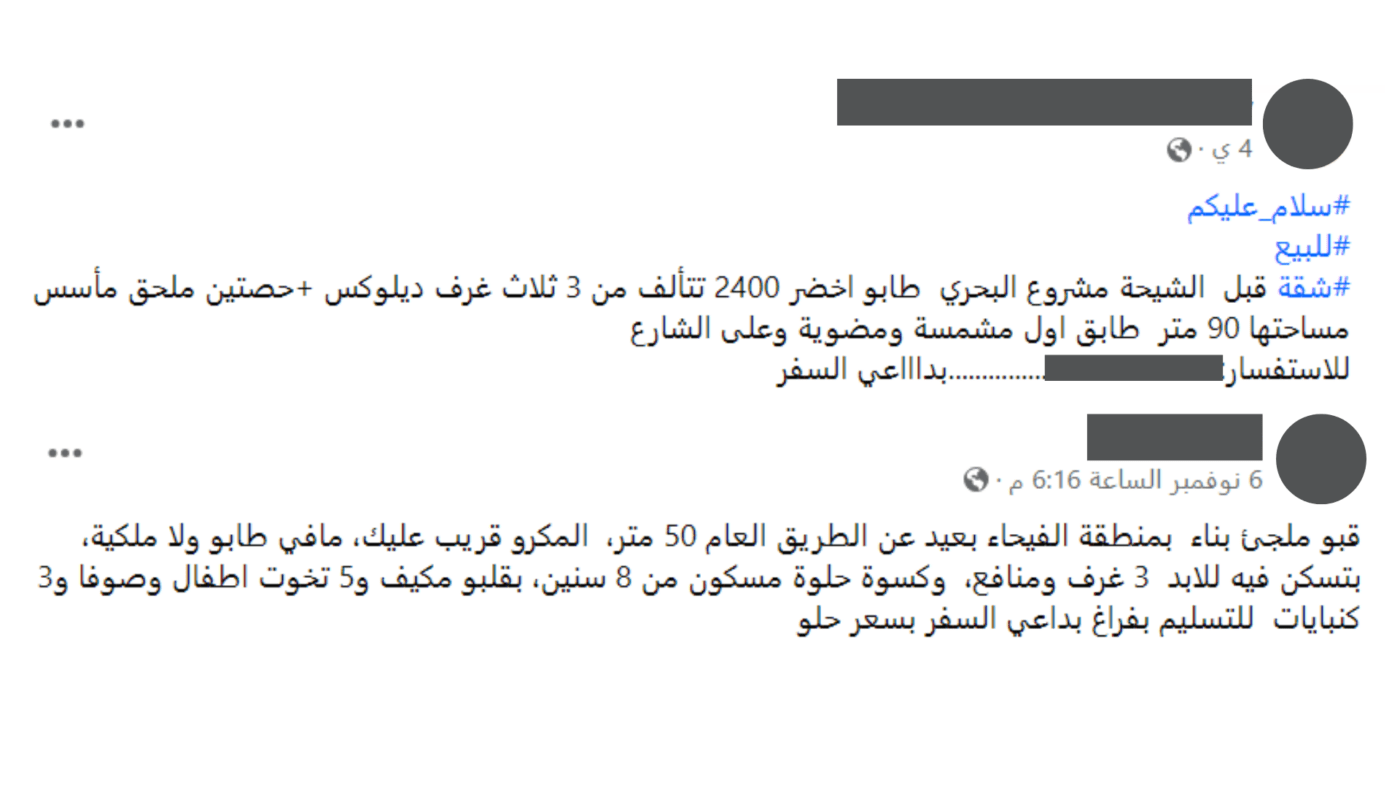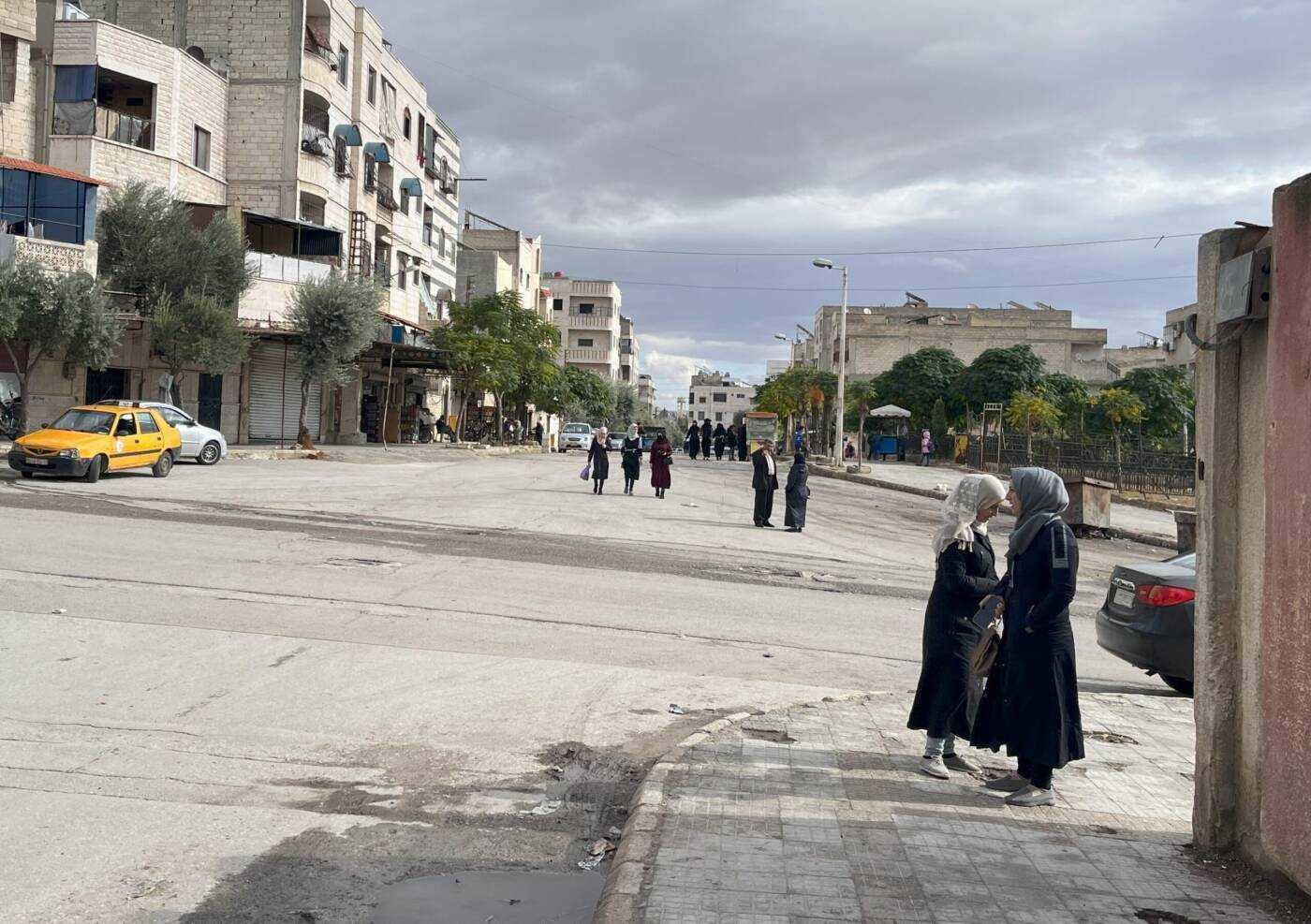Fleeing the homeland: Real estate sales finance migration from Hama city
Nearly 13 years after the revolution, Syrians continue to flee the country—this time for economic reasons. In regime-held Hama city, financial hardship is driving a renewed wave of migration, as residents sell homes and property to fund a way out.
27 November 2023
HAMA, PARIS — “There are no young men left in Hama. Everybody is escaping the city. Three-fourths of the guys from my neighborhood have left the country,” Rabie Amer said. The 37-year-old is watching as a new wave of migration empties his regime-controlled hometown in central Syria.
“It’s a very tragic situation, a bleak atmosphere,” Amer added. “Young people are either drowning in the search for a living, or looking for a migration route to get out of here,” he told Hama Today and Syria Direct.
Nearly 13 years after the Syrian revolution broke out, the country’s people are once more fleeing—this time for different reasons.
Places like Hama city, which did not experience large-scale military operations in recent years, are seeing a new wave of economic migration, Talal al-Mustafa, a France-based researcher at the Harmoon Center for Contemporary Studies, said. In the early years of the revolution, those who left “fled conscription, or the fear of prosecution and detention by the security services,” he added.
Young men are not the only ones leaving Hama. Al-Mustafa pointed to “the migration of women, too, through legal or illegal means.” He gave the example of “Hama province’s al-Salamiya city, where a group of young men and women leave weekly for [opposition-held] northern Syria, and from there continue on to Turkey, and perhaps Europe after that.”
Between March 2011 and the start of 2020, some 100,000 young men—including military-aged men and those wanted for mandatory military service—left Hama, according to information Hama Today and Syria Direct obtained from the city’s Immigration and Passports Department. The source at the department said this number made up more than 50 percent of the city’s men and youth, while the country’s current economic crisis is now driving those who remained to emigrate.
July 2023 marked a turning point in the latest wave of migration from Hama city, local residents, including those whose relatives have left the country, said. That month, the Syrian currency plunged to a black market exchange rate of 10,000 Syrian pounds to the US dollar. The exchange rate is even worse today, standing at SYP 13,750 to the dollar.
“This year, the situation is worse than the years before,” Amer said. “The poverty is terrifying, with serious repercussions for the local community, such as the spread of drugs.” He noted that “many Hama families rely on remittances from their relatives abroad. If not for that, the reality would be worse, and the wave of migration more severe.”
The monthly salary of a public-sector employee, at most SYP 1.65 million ($120), is not enough to cover monthly expenses, Amer said. “It is not enough to cover one meal a day for an entire month for a family of five,” he added.
The official minimum wage for private-sector employees is SYP 185,940 ($13.50) per month, as set under Legislative Decree No. 11 of August 2023. In addition to increasing the minimum wage, the decree doubled salaries and lump-sum wages for public sector employees, military personnel and pensioners.
Financing travel
As more and more people look to leave Hama, the city’s real estate market has seen a revival, as residents sell their properties to cover travel costs.
Abu Hassan (a pseudonym), who owns a real estate office in the city, said the past three months “saw major activity in the purchase and sale of real estate, after sales had been limited to used furniture.” He attributed the uptick in sales to residents “securing travel costs for those wishing to emigrate.”
Over the past three months, Abu Hassan has received at least 10 clients buying or selling property a day. “Many of the sellers are offering their properties for prices below their true value, to sell them quickly for the purpose of travel,” he said. Social media posts on pages dedicated to buying and selling in Hama, reviewed by Hama Today and Syria Direct, support Abu Hassan’s account.

Facebook posts by Hama city residents offering real estate for sale in November 2023 (Facebook/Hama Today/Syria Direct)
Fadi (a pseudonym), a young man in his 30s, traveled from Hama to Egypt in August, accompanied by his wife and two children. The journey “cost more than $5,400, including flights and obtaining an expedited entry visa,” he explained.
It was money he did not have. As a public sector employee working at the Hama Electricity Directorate for SYP 250,000 ($18) a month, Fadi was not making enough to cover his family’s basic expenses. Before leaving, he requested an unpaid leave of absence from his job. He could not formally resign, as the Syrian government has prohibited accepting the resignation of most public sector employees since 2022.
During his leave of absence, Fadi sold his house in Hama, which he inherited from his father, for SYP 250 million ($18,000). “It is really worth SYP 350 million [$25,000],” he said, meaning he lost around 30 percent on the sale “in order to sell it urgently.”
“It was not easy to part with the house. I chose to sell it to save my family from hunger and a slow death,” Fadi said. He had reached a point of helplessness, “no longer able to cover my family’s most basic needs, because of the high cost of basic goods compared to my salary.”
During the last months he spent in Hama city, his salary “was only enough for a week, so I accumulated debts,” he said. “Migration was the only option to secure a better living for myself and my family.” Fadi chose Egypt “since it has the cheapest cost of living compared to other [nearby countries], and I have some relatives there.”
Fadi and his family now live in 6th of October City, in the Giza governorate near Cairo, which has the largest concentration of Syrians in Egypt. He is looking to start a business with the remaining money from selling his house in Hama, and is optimistic. Leaving Syria, Fadi says, was “the best decision I’ve ever made.”
Murhaf (a pseudonym), 48, sold his home, car and shop in one of Hama city’s markets before leaving for the United Arab Emirates (UAE) this past July with the aim of setting up a business there. He used the money to rent a small house for his wife and three children before he left.
His motives were not only economic, but also related to security, Murhaf’s wife Faten said. “At a time when trade activity was impacted by the fall in the price of the pound, the Syrian government exerted pressure through the Secret Office [an economic security office under the presidency] and the customs directorate to force traders to pay bribes,” she said.
“Emigration was not on the table before the start of this year. But the absence of a good future for the family and the children inside Syria made it the best option,” Faten said. She and her children will follow Murhaf to the UAE “once the current school year ends, and his situation there will also be more stable.”
Al-Mustafa, the researcher, noted that “some may say if businessmen and investors are leaving Syria, it means that it is not due to the livelihood factor.” He responded that “the lack of services such as electricity, water and fuel, [as well as] the domination of the security services and security and economic instability in their work is an important reason for their migration.”
“At any moment, the security services could cook up reasons to seize these businessmen’s property, so the decision to flee is natural,” al-Mustafa added. “Economic migration has levels, ranging from businessmen to Syrian citizens who cannot secure their day-to-day needs.”
Those who remain
Every day, Abdulhadi (a pseudonym) tells himself he wants to migrate to “a place where I can make a good income.” What stops him is “financial hardship, and not having people I can borrow the money to travel from,” he said.
“If I could cover the costs, I wouldn’t stay here a single day,” Abdulhadi said. Migration is “a dream,” but “an unattainable dream” for the man in his 20s. He had to suspend his university studies, after spending two years at Hama University’s Faculty of Economics, “to help my father with the household expenses.”
He has found himself in an inescapable spiral. “I can’t complete my studies, I can’t secure a travel opportunity, and I can’t cover our monthly costs,” Abdulhadi said. Every month, he has to “borrow money to pay for medicine for my mother, who has thyroid problems.”
Abdulhadi is among the number of Syrians who have “lost hope in life, in the possibility of continuing on in Syria, after they became unable to meet their basic needs,” al-Mustafa said. Migration is a way to survive.
“Migration is the only solution we have,” Amer said. It is “a dream” for him, too, but his obligations to care for a family member who is in poor health have prevented him from joining the numbers of those leaving his city.
For now, he remains in Hama, shouldering “the responsibility for care and the deteriorating economic conditions, which are getting worse, year after year,” he said, stressing “2023 is the worst” so far.
**
This report was produced in cooperation between Syria Direct and Hama Today. It was originally published in Arabic and translated into English by Mateo Nelson.







